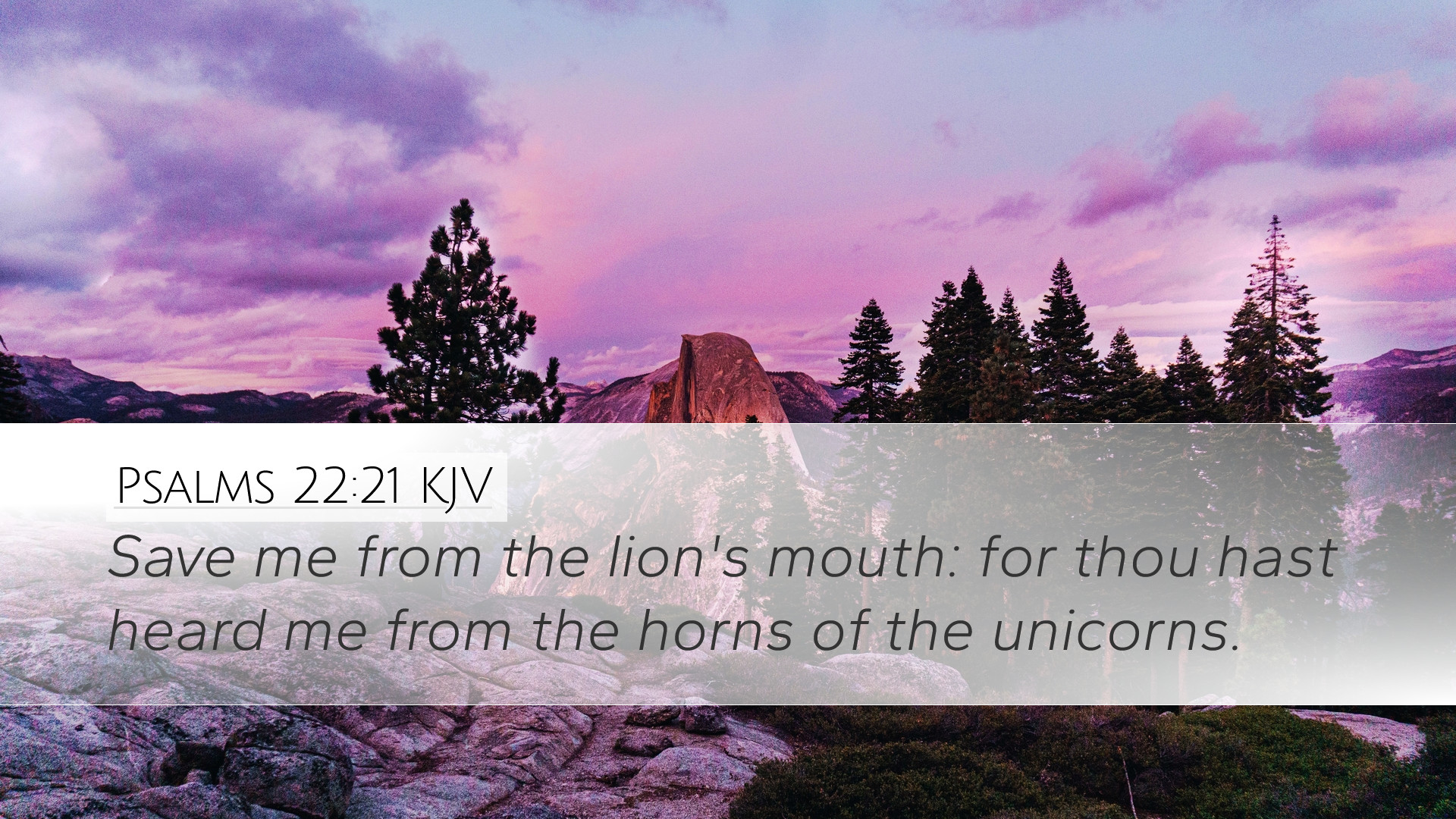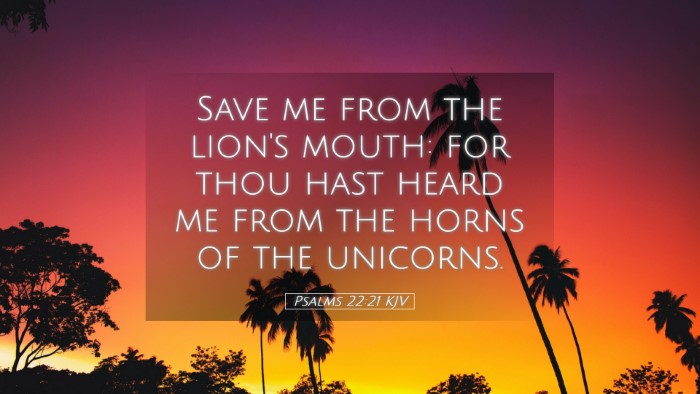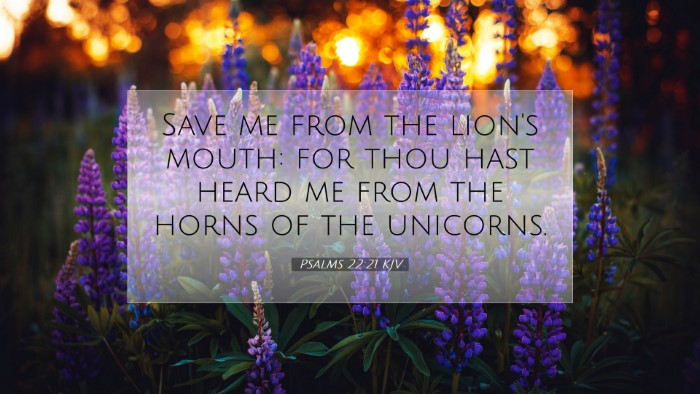Introduction
The 22nd Psalm is one of the most poignant and prophetic psalms in the entire book of Psalms, recounting a deep cry for deliverance paired with profound trust in God. Verses in this psalm reflect the sufferings of Christ and are pivotal for understanding the depth of His anguish during the Passion. In focusing on Psalms 22:21, we delve into themes of deliverance, the nature of God’s response, and the symbolic imagery employed therein.
Contextual Background
The Psalms, attributed primarily to David, express a range of emotions, from despair to exuberant praise. In this chapter, David voices distress amid overwhelming adversaries, illustrating a strikingly human experience of suffering and questioning. This provides a lens through which scholars can explore theological implications, especially regarding messianic prophecy.
Verse Analysis and Commentary
The request to be saved from the "lion's mouth" serves as an evocative metaphor for perilous circumstances, suggesting a feeling of imminent destruction. While the "horns of the unicorns" may appear obscure, it bears significance in the context of power and strength.
1. Metaphor of Danger
Matthew Henry's Commentary emphasizes the ferocity of the lion as a representation of fierce enemies who threaten life and faith. This metaphor indicates the intensity of David's struggle against tangible foes, reflecting spiritual warfare that resonates with believers today.
Adam Clarke interprets “lion” as representing Satan: "Your adversary the devil, as a roaring lion, walks about, seeking whom he may devour" (1 Peter 5:8). Clarke's exposition highlights the spiritual dimension of danger, similar to the physical trials depicted by David.
2. The Horns of the Unicorns
The "horns of the unicorns" is a phrase that invites discussion regarding its translation and meaning. Albert Barnes suggests this may symbolize strength and majesty, representing powerful adversaries that seem insurmountable. In the context of ancient warfare, horns signify authority and dominance, linking the imagery to David's cry for deliverance.
Henry also infers this to imply a plea to be saved not only from physical foes but also supernatural forces. The “horns” signify a place of strength, begging the question, where can one find refuge when faced with such overwhelming power?
3. Acknowledgment of God's Sovereignty
The latter part of the verse, “for thou hast heard me,” expresses confidence in God's attentiveness to prayer. This affirmation is profound; it argues that even amidst brutal adversity, God's responsiveness is assured. Here, Clarke articulates a beautiful balance of despair and hope, reminding us that while God may seem distant during trials, He is ultimately characterized by His promise to listen to His faithful.
Henry elaborates on the necessity of faith in God's eventual intercession, painting a picture of hope in what appears bleak. This acknowledgment complicates the duality of despair and faith in the life of a believer, encouraging a steadfast heart.
Application and Theological Reflections
As we reflect on Psalms 22:21, several key themes emerge relevant for pastoral ministry and personal application:
- Understanding Suffering: This scripture affirms that suffering is a common human experience. Just as David cried out to God, believers today may also experience profound distress. The assurance of being heard contrasts against the backdrop of suffering, compelling one to embrace honesty in prayer.
- God’s Faithfulness in Deliverance: The verse reaffirms the idea that God is both powerful and compassionate. Believers are called to trust in His ultimate deliverance, regardless of the present circumstances.
- The Nature of Spiritual Warfare: Recognizing the “lion” and “unicorns” as symbols of more than physical threats invites a deeper understanding of spiritual struggles. The acknowledgment of these threats reinforces the church's call to prayer and vigilance.
- Lament and Hope: The structure of this verse is a powerful reminder of lamentation leading to hope. Encouraging congregations to articulate their distress while also recognizing God’s response fosters a mature faith community.
Conclusion
Psalms 22:21 serves as a rich source of insight for pastors, students, and theologians, enabling a deeper engagement with the concepts of suffering, plea for divine assistance, and acknowledgment of God’s attentiveness. Through this verse, believers are encouraged not just to call out for help but to trust in the history of God's faithfulness. This dual reminder fosters spiritual resilience and cultivates a profound understanding of divine grace in the midst of life’s fiercest battles.


